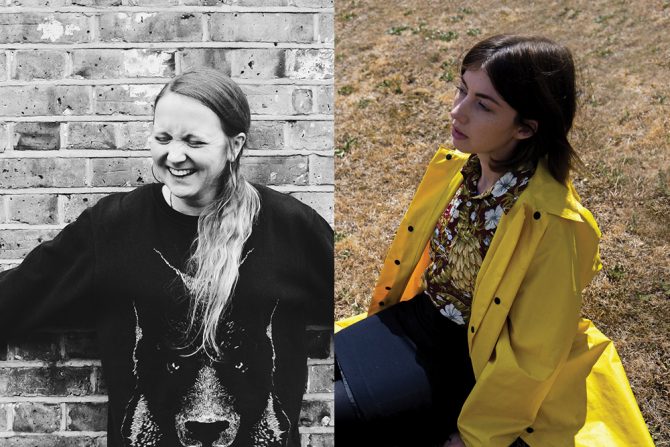Kate Sylvester introduced the two poets and her assertion that poets were the antidote to a world out of kilter brought rousing applause.
It's not an easy thing to report on a poetry reading. You listen with different ears to poetry than you would to a speaker.
Being tagged with the epithet "poetry stars", might bring with it an unfair burden of expectation and if Hera Lindsay Bird, who was first up, felt that she didn't show it as she appeared quite at ease on the stage. The poems she read were generally dealing with love and sex, but often in a tangential and quirky way. She read the poems: Jealousy, Love is like laying down in a major intersection, Monica (about the character, Monica Geller, from the sitcom, Friends), Da Vinci Code, Six Seasons of the Nanny and Pyramid Scheme.
Now, I confess, I'm a sucker for humour in poetry because poetry can often take itself very seriously. There was a strong vein of humour running through all the poems that Bird read and the audience chuckled a lot during her reading.
I've read that the poet, Lord Byron, was treated like a rock star in his day with people, mainly women, queueing for hours outside booksellers when Byron released a new book of poetry. He died a rock star's kind of death too, dying at Missolonghi, aged 36, while helping the Greeks battle the Turks for their independence.
Perhaps Hera Lindsay Bird will revive the "poet as rock star" phenomenon if the reception of her eponymous debut is anything to go by.
Hollie McNish came to poetry fame via that most 21st century medium, YouTube. A little older and a little more experienced than her reading companion, McNish read poems that traversed her life from childhood to pregnancy in her thirties. She read the poems: Yanking (a variation on what she claimed was a Kiwi-ism "giving a wristy"), Call On Me (about the nature of friendships changing as we get older), Hiccups (for her daughter), A Dead Pig I Mean (about a bizarre ritual David Cameron indulged in at private school), Wow (about her one-year old daughter admiring her naked body in a mirror), Sex (about not wanting sex for six-and-a-half months after her daughter was born, Bricks (talking with her 92-year-old grandmother about what turned Hollie on) and McNish ended with a poignant poem dedicated to her Grandad called Cherry Pie with its echoes of post-war trauma.
I'll be first to put my hand up and say that I am all for the popularising of poetry (being a poet myself and wanting to get my books out there in the hands of poetry readers), but there are still ivory tower elements fiercely guarding poetry for the elitist few as evidenced by the poet, Rebecca Watts, refusing to review Plum, McNish's latest poetry collection, for P. N. Review. Watts instead wrote a polemical article titled Cult of the Noble Amateur in which she wrote: "Plum is the product not of a poet but of a personality. I was supposed to be reviewing it, but to do so for a poetry journal would imply that it deserves to be taken seriously as poetry. Besides, I was too distracted by the pathological attitude of its faux-naïve author, and too offended by its editor’s exemplary bad faith, to ignore the broader questions it provokes." Watts' article subsequently received broad coverage in several English news outlets such as The Guardian and the BBC.
- Find works by Hollie McNish in our collection
- Find works by Hera Lindsay Bird in our collection
- Follow our coverage of WORD Christchurch Festival 2018



Add a comment to: Hollie McNish and Hera Lindsay Bird – Poetry Stars: WORD Christchurch Festival 2018